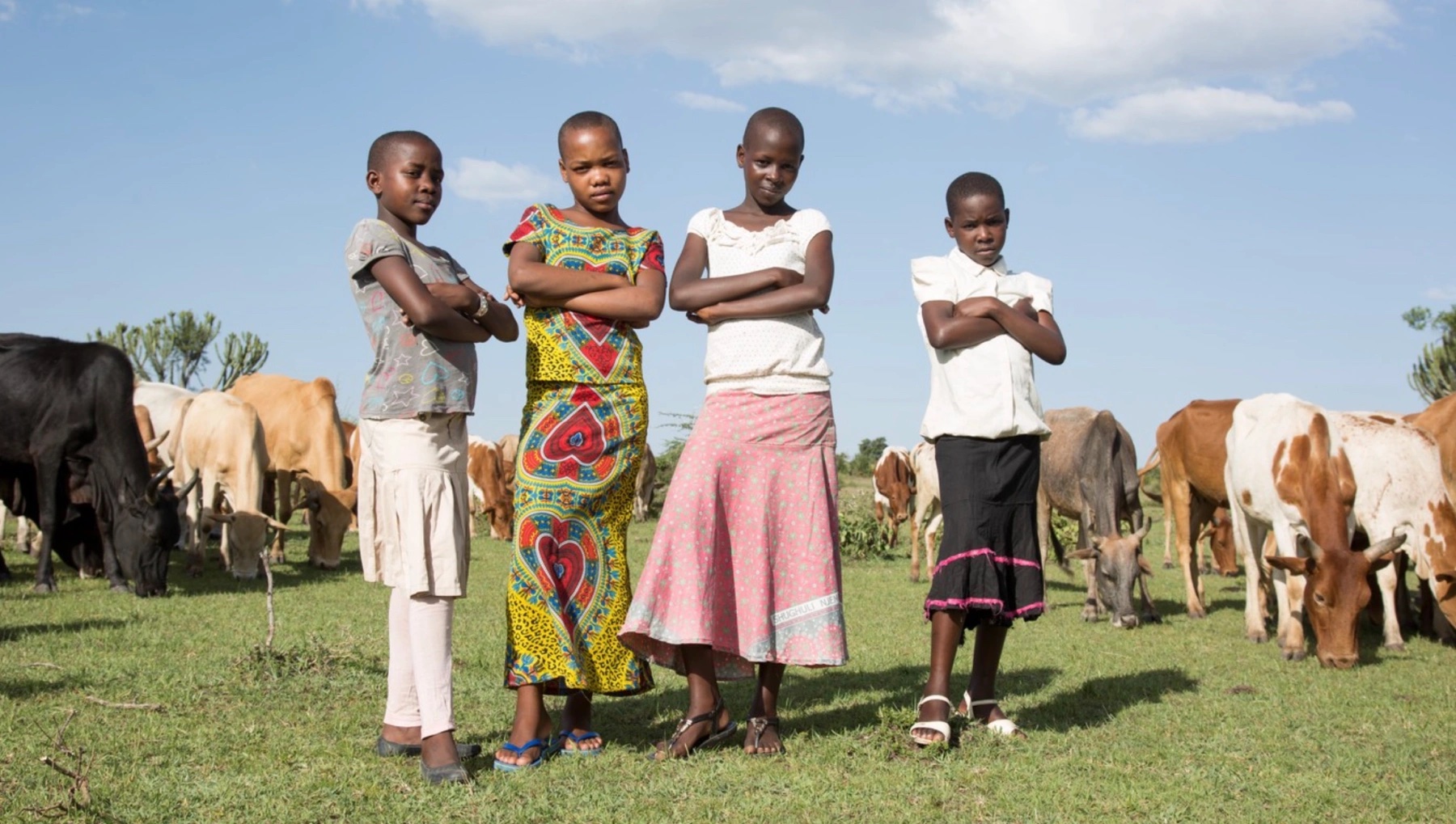By Sandra Yu
Healthy Tomorrow hosted a film screening and panel discussion of In the Name of Your Daughter, filmed and directed by Giselle Portenier and released in 2018. The featured speakers of the panel last fall were Portenier, herself, and Susan McLucas, founder of Healthy Tomorrow. Healthy Tomorrow (in partnership with Sini Sanuman) is a U.S.-based group that actively works to stop female genital cutting (FGC) in Mali. A notable Sahiyo volunteer and former programs intern, Hunter Kessous, was involved in the event planning, as well.
The documentary is a deeply intimate piece about young girls in Tanzania who bear the societal pressure to undergo FGC. Following the stories of several young girls in Tanzania and a charismatic African activist, Rhobi Samwelly, the audience is taken on an emotional journey into the heartbreaking circumstances in which daughters flee their families to escape FGC and their planned child marriages.
For me, the topic of FGC was not unfamiliar, but I had always read medical analyses and journal articles that characterized the girls’ bodies by their body parts. To watch the film and hear firsthand from filmmaker Portenier and activist Susan McLucas was eye-opening. I believe the film succeeded beyond expectations.
In the highly divisive rhetoric of anti-FGC activists against cultural traditionalists, Portenier presents the complexities of fighting against an ingrained tradition in detail. Most notably, she wedges parental authority against legal authority. In one scene, the school authorities and police receive notice that parents are preparing for cutting season, the summer months of June, July, and August when thousands of girls in Tanzania undergo FGC from traditional community cutters. Gathered in a small classroom, the local police, schoolteachers, and activists face off with parents. They go head-to-head, arguing about who has the authority to determine their fates. Tears flow, and it is a heartbreaking scene; the parents must decide between a heavily ingrained cultural tradition and the wellbeing of their daughters, while the young girls decide whether they can trust their very own families.
The second front that I believe Portenier succeeds on is to elicit a heart-wrenching response from the audience on behalf of the young girls. She presents a heart-wrenching juxtaposition between the girls’ perceived social roles and their own autonomous dreams. In the initial scenes, we are taken with Samwelly to a community market as she asks men about their beliefs regarding marriage, FGC, and women. One man pointed to the cows surrounding them and commented. “A cut girl is worth ten to twelve cows,” he said. “An uncut girl is worth six cows, sometimes less.” Another man chimed in, “I am an entrepreneur,” he said. “My business comes from selling cloths and items for the ceremonies. If you stop FGC, you are infringing on my rights as an entrepreneur.”
Throughout the film, young girls are constantly compared to their marriage value or dowry worth in cows, and criticized for promiscuity or uncleanliness. In the last scene, we see a montage of young girls, each with a dream. One wants to become a doctor, another an aerospace pilot. As Portenier commented in the panel discussion after the screening, a human rights perspective is needed in fighting FGC above all else. When the girls realize their autonomy and impact of FGC on their bodies, they instinctively flee because it is an infringement upon their human rights.
On that note, Portenier makes the violence of the tradition crystal clear. In the film, she juxtaposes the stunning Tanzanian landscape, fields extending far past what the eye can see, with the intense night-time raids, as police rescue girls about to undergo FGC and arrest parents and cutters. Beyond the immediate physiological and psychological trauma, young girls that undergo FGC may hemorrhage or bleed heavily to the point of death. Long-lasting effects include problems with childbirth, pain during sexual intercourse, and sexual dysfunction. Additionally, arresting parents may not be effective for long-term change, as it is not to the benefit of the child in many cases and the girls will likely still be cut. Immediate family members can oversee the cutting without parental permission or in the case of the parents’ imprisonment.
By the end of the film, the audience is left heartbroken for the young girls, forced to make a life-changing decision between their families and their autonomy. Portenier ends on a positive note, highlighting Rhobi’s incredible work, including the Safe House built to house runaway girls. I do wish that she touched more on the relationship between FGC, traditions, and religion, as well as the growing medicalization trend of FGC being performed by healthcare providers. However, in the 1 hour and 25 minutes, In the Name of Your Daughter does a phenomenal job of drawing in and mobilizing the audience.
After the film screening, McLucas and Portenier discussed the impact of COVID-19 on activists’ efforts. The situation has worsened as families are selling daughters off into marriage at larger numbers due to the economic crisis in Tanzania. While the activists’ previous strategy involved law enforcement, largely through school involvement and night raids, the families have adapted. Cutting season comprises a full year potentially and schools are closed, leaving many girls vulnerable to the tradition. McLucas, whose work is focused on ending FGC in Mali, lamented that it is increasingly difficult to investigate potential cuttings. However, her organization’s strategy now focuses primarily on ensuring that uncut women gain value within their own societies. The task is daunting, to change the minds of a generation and more, but the activists in Tanzania are making an impact. The Safehouse, developed by Samwelly, has saved more than 300 girls so far, and continues to house girls in their time of need.
To learn more about FGC in Tanzania:
https://www.unfpa.org/news/girls-escaping-fgm-rural-tanzania-crowdsourced-maps-show-way-safety
https://tanzania.unfpa.org/en/publications/fact-sheet-fgm-united-republic-tanzania
Below is Rhobi Samwelly speaking at a United Nations’ panel in 2018:

